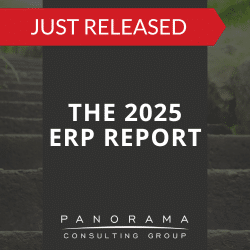While every organization considering an ERP implementation has compelling reasons why they want to spend wisely, increase efficiency and streamline business processes, non-governmental organizations (NGOs) also have to contend with the simple fact that any misstep they make in these arenas could very well have a profoundly negative impact on the population they serve. I’m not implying that anyone takes an ERP system selection and implementation lightly but when lives actually are at stake, the risks can be very serious indeed.
At the same time, ERP systems can bring an enormous amount of benefit to NGOs. Faced with managing administrative systems, financial systems and personnel (both employees and volunteers) across different countries and cultures, NGOs depend on IT systems to keep their organization together and functioning. Add this need to a backdrop of stringent multinational regulations and transparency obligations (in both public audits and funding requests), and it’s clear that an ERP system might be just the thing to make the whole shebang run smoothly.
But how is an NGO to weigh the risks versus the rewards? A cobbled together system might be inefficient and unreliable, but an expensive new system might be impossible to utilize in the challenging terrain many NGOs operate in. It’s almost laughable to imagine a team in Afghanistan or Haiti or Niger being dependent on their computers and Internet service. On the other hand, teh simple truth is that NGOs that don’t think like businesses soon find themselves out of business. And businesses need technology to prosper.
It’s clear that there’s a lot to take into consideration. Following are a few components NGOs should mull over before making the leap into an ERP implementation:
- How are our operations and efficacy affected by our technological infrastructure?
- How are our compliance procedures (for accounting, tax and reporting) affected by our technological infrastructure?
- How do our people communicate and collaborate with each other? How do we communicate and collaborate with donors, volunteers, partners, government agencies and other key stakeholders?
- How are our donor database and constituent management systems streamlined with our other activities and data?
- How secure are our systems?
- How much do outdated administrative systems cost us (in time, money and missed opportunity)?
- How will our existing systems handle growth? An increase in need?
- How do our existing systems aid our accountability efforts?
The decision-making process is not an easy one, but the above is one place to start. It also would be wise to speak to other NGOs in your field or geographic area about their experiences with ERP systems and vendors, and how they thought the benefits of a new system stacked up against the risks and cost.












